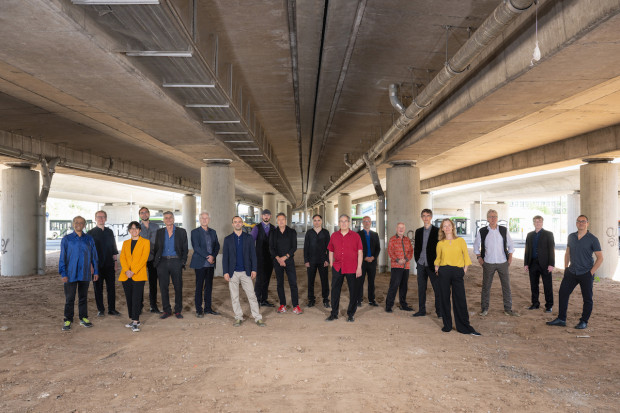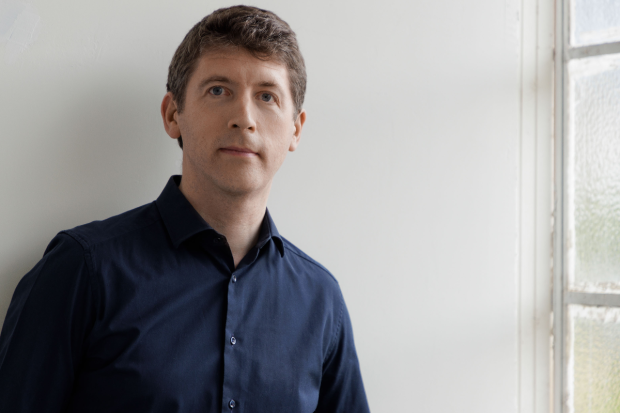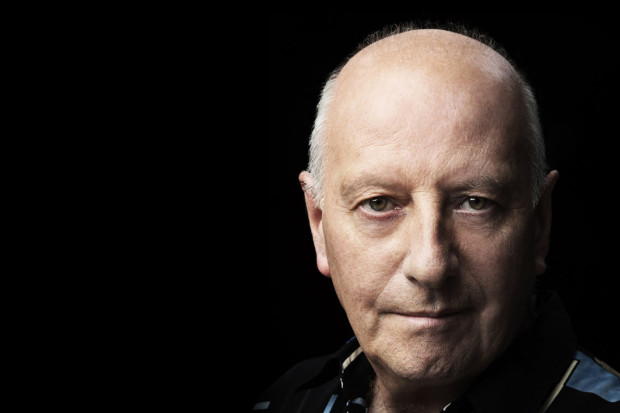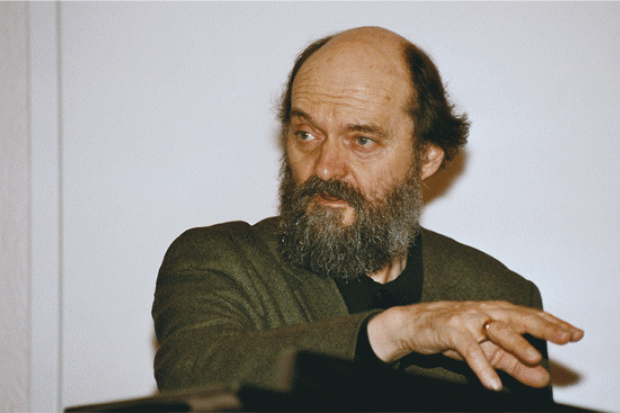
Will the Real Composer Please Stand Up?
Those of us old enough to remember the Dublin Twentieth Century Music Festival will recall the major effect it had on Irish musical life in the 60s. A parallel to the impact Rosc had on the visual arts in this country, it was perhaps Ireland’s first sustained exposure to international styles in music. The relatively isolated and insular attitudes which had informed much of Irish music in the post-war decades was challenged by the impact of such major figures such as Messiaen, Stockhausen and Lutoslawski. Not only did such composers and many others visit the festival, giving listeners a rare chance to hear their major works performed and discussed, but for many of us the ‘Young Composers’ Concert’ provided a valuable platform for fledgling works and was often the first chance to hear our music performed in the public arena.
As a student my memory of all those complex modern works was one of excitement and yet at times of bafflement. I wanted to be a composer too, and if that is what composers sounded like, I was willing to have a go. In retrospect, if my efforts were not very convincing it was hardly surprising, as I was not entirely convinced by them myself. The problem was that, in spite of the obvious diversity of the three composers I have mentioned, there seemed to be one generally accepted musical style if you wanted to be taken seriously as a composer. Although Messiaen had forged his own highly personal language based on a heady mixture of birdsong, colour and religious mysticism (which by its very nature discouraged imitators), and Lutoslawski had introduced aleatoric techniques to his music, it seemed that serialism was the main language of the day and an obligatory language it seemed too for all who wanted to be taken seriously. Scores seemed to be accompanied by dense mathematical diagrams more reminiscent of nuclear physics, the function of these being somehow to ‘explain’ the music, and the fact that the diagrams seemed to have little or no relation to the actual sounds seemed to be unimportant. They were intended to impress and perhaps to baffle other composers. As Louis Andriessen has said, most composers write not for themselves, or to please an audience, but for other composers. The acceptance by one’s peers is felt to be a prime requisite and an indication of success or failure. And at times one wondered if it was a case of the emperor’s new clothes.
Things are surely much healthier today. The various styles of post-modern music offer a much wider choice of language to composers: minimalism, ethnic music, cross-over, computer generated sounds, jazz/pop influenced music, neo-simplicity, neo-complexity, and so on. Indeed the existence of such a journal as JMI is surely testimony to a musical world where jazz, traditional and modern classical music can be discussed and can benefit mutually from a sort of cultural cross-pollination. And, in addition, composers today such as Part and Tavener show us that the past, as well as the present, can be mined to provide the composer with raw materials. So, for today’s composer the choice is vast.
And yet the very pluralism of contemporary music is surely confusing. How does a young, or even a not so young, composer find their voice today? Is there a ‘right’ or ‘wrong’ way to go? Is one style more valid than another?
Things were certainly easier in the 60s and 70s provided that you were in tune with the ideology of Darmstadt, and how much easier still life would have been for a composer in Mozart’s day, or Palestrina’s or Handel’s when music was expressed in a common language understood by all.
The problem for today’s composer is not what to say but initially to find a language in which to say it. This is easier said than done. The language must be a genuine one, not a pastiche of Stockhausen, Berio or whoever, and must be a personal and convincing one. A further problem is that often the search has to begin again with each new work. ‘Finding one’s voice’ is no guarantee that the problem has been solved once and for all. Every new work presents its own challenges and problems to be solved as the composer is faced once again with a tabula rasa.
The view has been expressed that in the future there will be no major, internationally recognised composers but many different individuals, each with their own distinctive voice as well as their own band of followers. If we think of composers such as Schnittke or Ligeti theirs is an immediately recognisable language as personal as a fingerprint and by definition difficult, if not impossible, to imitate.
The historical idea of an individual pathfinder, a musical trailblazer, is perhaps obsolete. Andy Warhol’s comment that in the future everyone will be famous for fifteen minutes has a certain logic. As the information highway and the web have radically changed our access to the world so too has the traditional concept of composers being promoted by publishers and recording companies. As Roger Doyle explained in the first issue of JMI (‘Death of a Medium’, Nov/Dec 2000) composers can increasingly print, publish and record their own music and sell it on the Internet. The role of the publisher, for long the imprimatur of success, is almost daily being redefined. Recording contracts too are no longer regarded as essential for today’s composers as the cost of making CDs falls dramatically and the technology becomes more user friendly.
As a lecturer in contemporary music - as well as other subjects - I am aware of my own tastes and perhaps prejudices, in spite of efforts to be impartial, when it comes to deciding which composers to discuss. My students in the future may well be amazed to recall I mentioned ABC as being important but said nothing about XY and Z. The sifting process of time has always altered the pecking order of fame (think of Mozart and Salieri for example) and today the process has accelerated enormously. If you look at old Novello editions of choral music, for example, (the ones with composers’ names framing the title page) it is interesting and salutary to see those names that belonged to the hall of fame less than a hundred years ago. Today the list would surely be revised. And revised again in another hundred years?
Apart from the historical pecking order even with modern composers the situation is fluid. I lecture also on contemporary Irish music and the temptation is to pigeonhole composers into tidy groups. I feel a ridiculous sort of irritation when a composer refuses to conform to the neat packaging I have devised for them, as for instance with Seoirse Bodley’s recent News from Donabate, which breaks the mould of his works since the 70s with their juxtaposition of traditional and contemporary elements and takes up again the thread of the complex post-serial works he produced in the 60s
But how marvellous to find artists doing the unexpected. Stravinsky’s commentators of the day were surely nonplussed when the creator of neo-classicism and acknowledged polar opposite of 12 tone music began to explore serialism in his latter years. The text books had been written and now would have to be revised. ‘He wasn’t meant to do that’ we can imagine them protesting, upsetting the neat labelling they had created for him.
The ‘real composer’ however should feel no obligation except that of following his/her own instincts. Leave the labelling and cataloguing to the academics. As John Adams has so delightfully put it, in the future composers should be ‘free to play in the garden of all that’s been before’. A sense of freedom from history, from peer pressure and above all from concern about critical comment should be the aim and duty of every composer.
Published on 1 July 2002
Eric Sweeney (1948–2020) was a composer, conductor and organist, and Head of Music at Waterford Institute of Technology between 1981 and 2010. For a full obituary see here: https://journalofmusic.com/news/rip-composer-eric-sweeney















